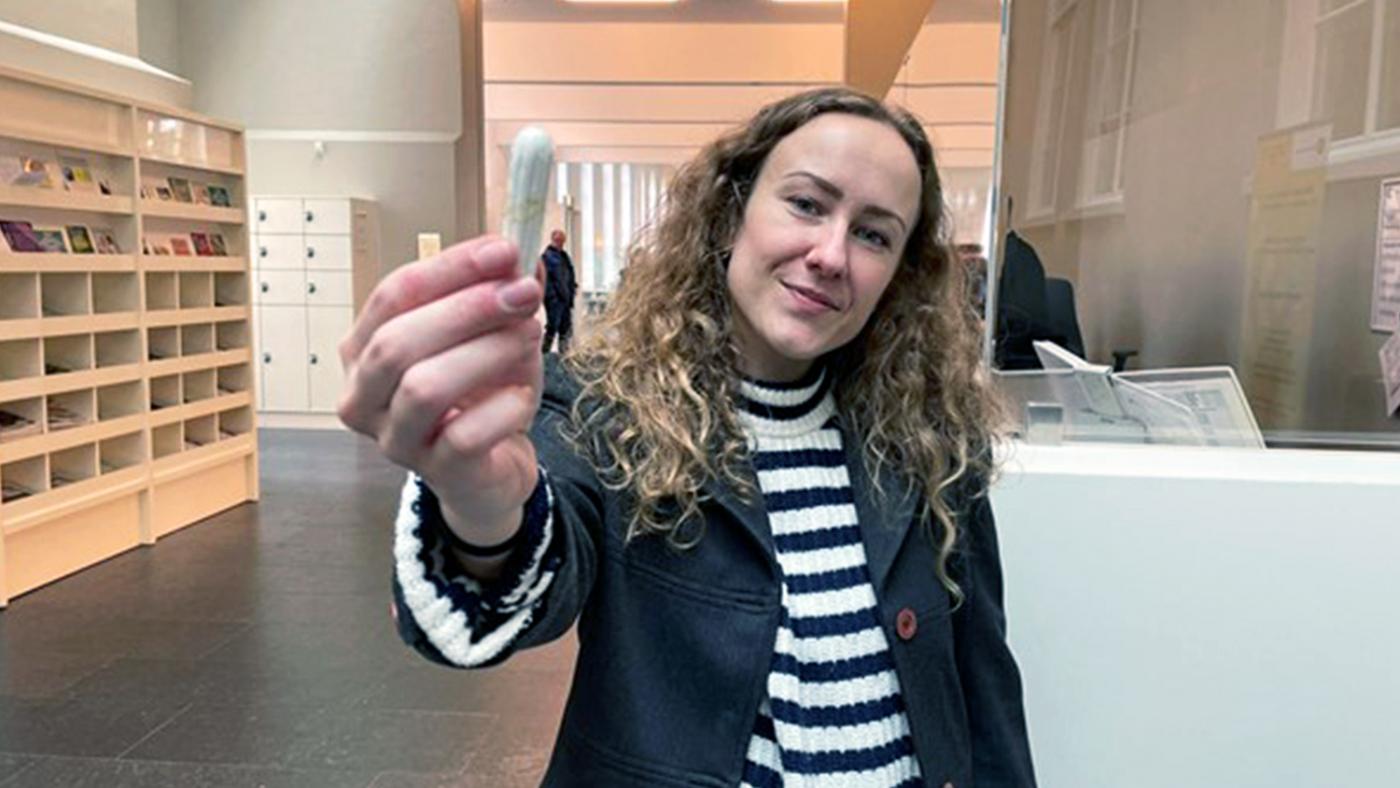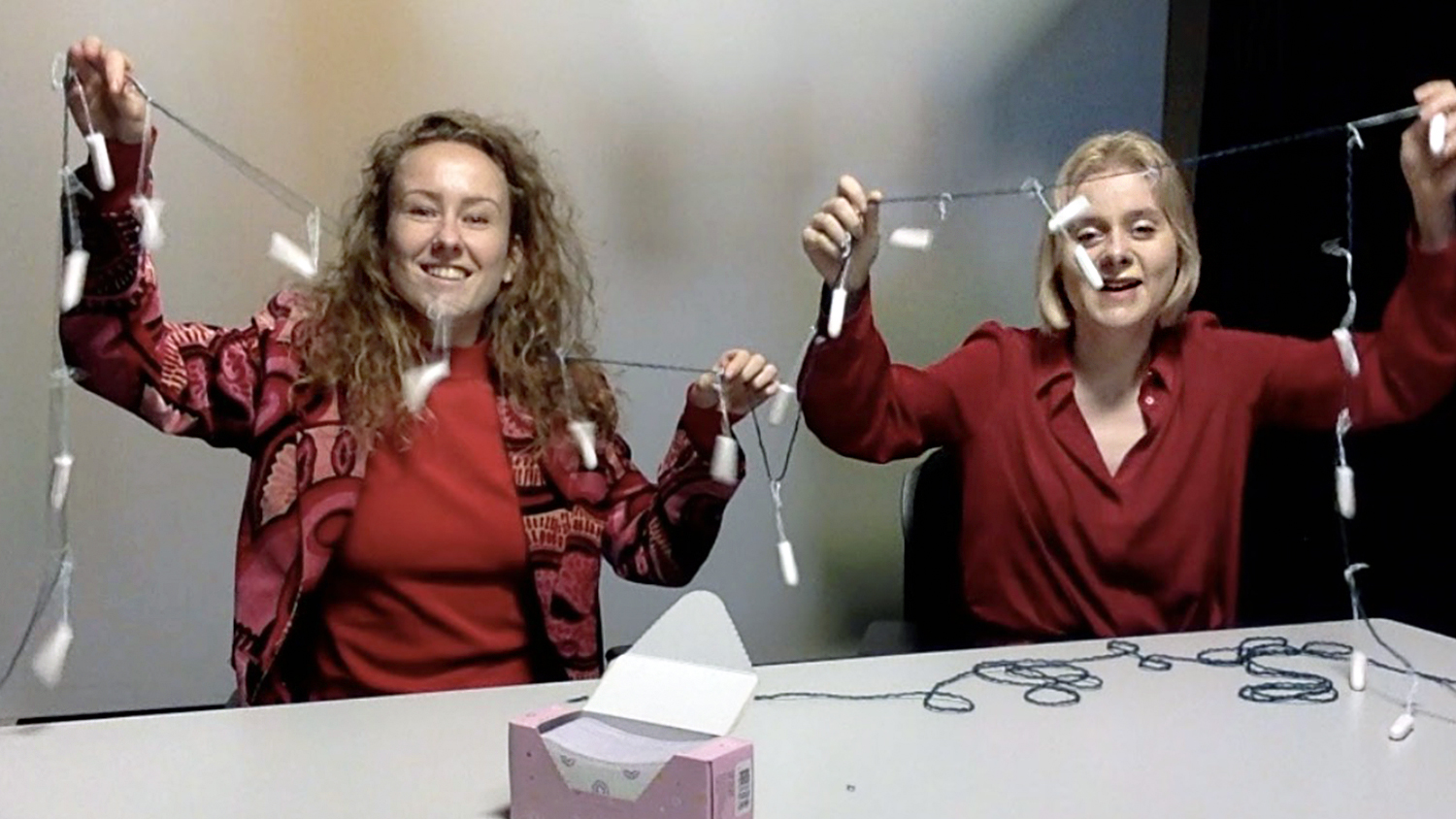As far as we’re concerned, free tampons are only a first step in the right direction

People who menstruate can't always predict when their period will come. After all, over 10 percent of them have an irregular cycle, according to research by Erasmus M. In addition, 25 percent of menstruating people experience breakthrough bleeding or intermediate blood loss. If you're a menstruating person yourself, then you most probably know what it's like to sit in class and suddenly realise you're getting your period, and all you want to do is go home and get a tampon. But if you do, then you miss the class, which is crazy when you think of it.
“Yes, but you cannot predict how things will go. A cycle can vary due to various circumstances, like stress, nutrition or contraceptives”.
Sudden menstruation can make up for dire situations and affects people more than you might think. In addition to missing classes, students might resort to inadequate replacements. Both options are clearly far from ideal. Looking to solve these inconveniences, UU is now offering free menstrual products on its premises. Together with the Facility Service Centre and the members of Lijst Vuur, we’ve arranged for tampons and sanitary towels to be available at a number of student service desks. This way, Utrecht University acknowledges the inconveniences employees and students may have when menstruating.

"This may seem like an effective solution but turns out to be terrible for your health as it can lead to infections".
But as far as we’re concerned, this is just the beginning. By offering free menstrual products, Utrecht University takes a beautiful step in the right direction, but things can always get even better. Some students might be hesitant to approach a service employee to ask for a tampon. A vending machine in the toilets would be a wonderful solution, but that is hard to achieve at the moment.
"If you know there's always a chance you might need an extra tampon, why don't you carry one with you at all times?"
"Well, why should people be punished because they forgot something? On average, a menstruating person has 451 periods in their lifetime, which comes down to about 2,700 days. It is only human to forget a tampon sometimes, isn’t it?"
In addition, traditional menstrual products, like tampons and pads, are single-use products and therefore not very sustainable. Alternatives like the menstrual cup are becoming increasingly popular among students. It would be great if the toilets could be adjusted to this as well. Each toilet cabin could have a tap, for example, so that people can clean up their cups there. After all, it’s not very pleasant (or hygienic) to rinse off your menstrual blood at the tap in the common space.
"Of course. But if you’re in a crowded lecture hall or have to walk back and forth, this could be a problem. If the university provides menstrual products at the service desks, then you know for sure there’s a tampon there ready for you”
But we can take this discussion even further. There's a huge debate around menstrual products and making them available to half of society. In Scotland, for example, these products are now available for free in public places like pharmacies, community centres and youth clubs. The measure should counteract the so-called menstrual poverty, a problem prevalent in the Netherlands as well.
Titled "Bloody serious", research conducted by Plan International shows that one out of every ten women sometimes doesn’t have the money to buy pads or tampons and one out of every six women points have to take these costs into account every month in their budget. On average, a woman spends over 12 euros a month on menstrual products. In the past few years, menstrual poverty in the Netherlands has become more visible. It's already hard enough for some people to procure menstrual products, so one can imagine they don’t always have a tampon at hand now.
We believe that tampons, sanitary towels, and panty liners are essential products to ensure people's hygiene during their menstrual period. It makes perfect sense that every toilet has toilet paper in it. Imagine having to bring that from home as well. So why isn't it normal to do the same regarding menstrual products? After all, they also make sure that menstruating people and their surroundings stay clean.
Are you interested in this topic? Then let yourself be heard through UU's questionnaire. That way, we will be able to thoroughly evaluate the trial period and hopefully make this change structural! Would you like to help us? Then have a look at Lijst Vuur's website.